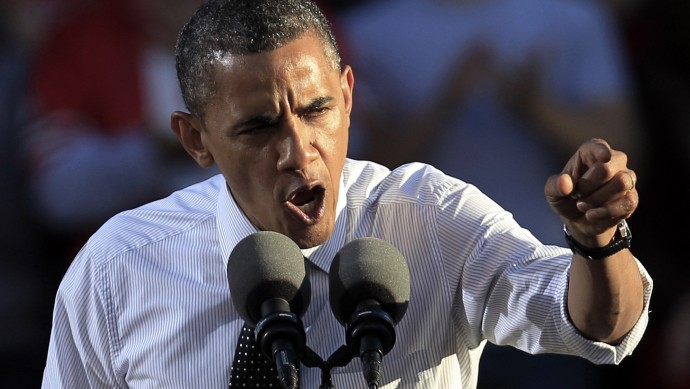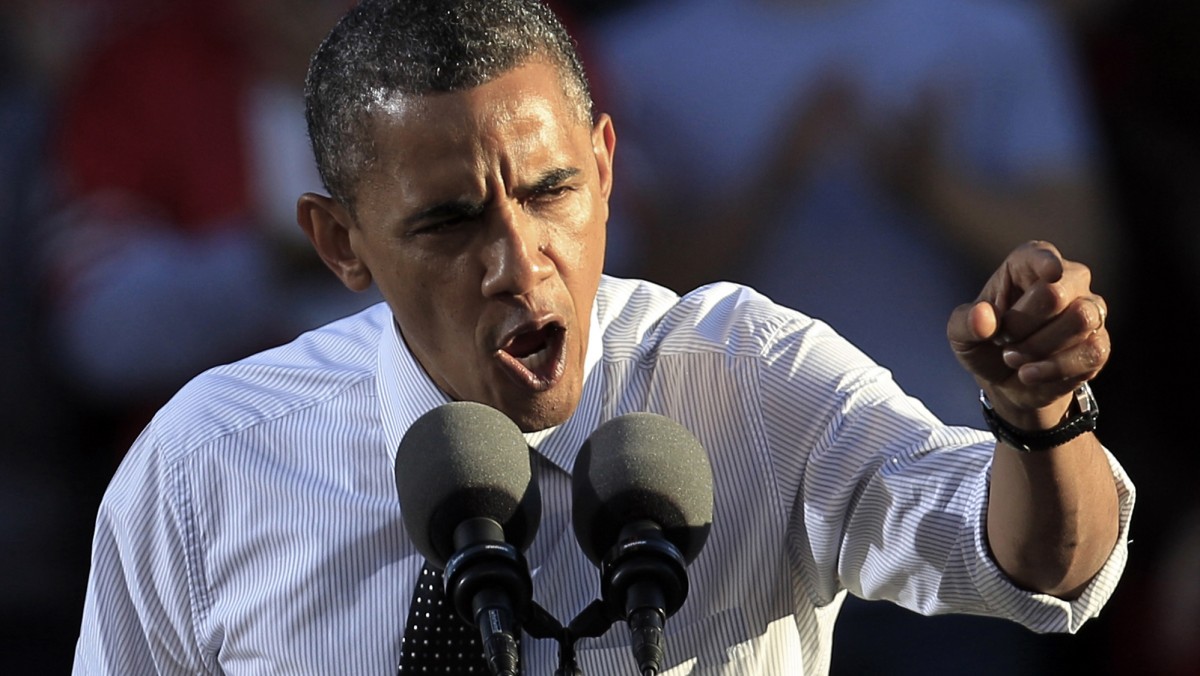
(CONNECTICUT) — With the second debate behind us, and with President Barack Obama being the winner by most accounts, it might be time for liberals and Democrats to reassess their reaction to the first debate. I’m sure most would rather look ahead than behind, especially given that there’s only about a fortnight remaining until Election Day. But no matter who wins, one of the fundamental flaws of the progressive movement (if we can call it that) will remain, and that flaw was put in stark relief in the days following the first presidential debate.
Debates typically don’t matter, but this one did. I have some theories as to why. One, as I have noted before, was that the media narrative in the weeks leading up to that debate was that Obama was winning/Mitt Romney was losing, and this set the stage for a predictable and pivotal media question: Can Romney use this the debate to mount a comeback? After it was apparent that Romney had indeed mounted a comeback, the narrative shifted again to how that comeback would affect the polls, and as each poll showed better numbers for Romney, that narrative deepened as it became self-reinforcing.
That was probably the only thing we could have seen coming. Unanticipated was Obama’s decision to strike a pose of professorial aloofness and Romney’s decision to lunge to the center by lying his way there. He does have a plan to cut $5 trillion out of the budget over a decade, and the only way to pay for that is by eliminating very popular middle-class tax breaks. And he does not have a health care plan that covers pre-existing conditions. Obama rightly raised these issues, though of course this was done with his signature detachment, which above and beyond everything else seems to drive people crazy. And because these are fundamentally unpopular positions, Romney bluffed his way to apparent moderation.
Yet I think there’s another reason this debate was a game-changer, though I can’t support this with data. It’s too intuitive and inchoate. Nevertheless, I sense the liberal and Democratic overreaction played a significant and little-discussed role in the state of the race. Consider the effect of that on undecided voters who may dislike both candidates but sense something must be wrong with Obama if his dedicated supporters are laying into him for not wanting to fight more, for being too arrogant to prepare for the debate and for not living up to the promises he made back during that magical mystery tour of 2008. To paraphrase one pollster, when conservatives get bad news they want to kill the messenger; when liberals get bad news, they want to kill themselves. And we did.
The glue that holds us together
Josh Marshall, of Talking Points Memo, did us a great service in the run up to the second debate by publishing anonymous letters-to-the-editor from liberals and Democrats outraged by Obama’s mediocre performance in the first debate. For example:
I’m still going to vote for Obama (if for no other reason: Supreme Court nominations), but I don’t really think, on a personal level, that a much-improved performance from Obama this Tuesday is going to heal the wounds from the first debate.
Because, ultimately, Obama’s public performance in that debate was the analog of Romney’s private chat at the fundraiser: it revealed the true Obama; it confirmed all of my worst fears about his character and personality. Whatever performance he pulls in on Tuesday, it won’t be genuine. It won’t be what Obama wants to be and who he truly is. By most accounts, Obama stepped off the stage after the first debate thinking that he had won. He lives in an alternate reality, not much different from the one Romney’s wealth constructs for him. I’m sad and disappointed, and that’s not going to be reversed by what happens on Tuesday.
Marshall also wrote about the impact of that first debate on the president’s base. He likened him to an army general who wins the trust of his soldiers but then doesn’t lead.
There’s simply no underestimating the level of demoralization Obama put into his supporters with that debate performance. I can see it palpably in reader emails from people who support the president. But it goes well beyond disappointment. It’s something more akin to soldiers going into battle and then looking over their shoulder to see the commander has turned around and is going the other way.
Supporters will fight like crazy for a leader or candidate who’s fighting, who’s in it, even against merciless mistreatment, even well after it looks like the odds are impossibly long.
There are deep bonds of mutual trust that go into leadership, even if it’s trust between people who have never met or spoken and never will. I’ll do this and you’ll do that. And I’ll do this even before you do that or without being able to see what you do because I trust you and you’ll do it eventually. And you can do it. This is the glue that can hold millions of people together [my stress].
While I find this analysis compelling, I can’t say I find it persuasive. It puts too much emphasis on a single person and not enough on those of us sharing liberal values. It also puts too much emphasis on campaign season and not enough on politics during the rest of the time. Moreover, these values are, or should be, the glue that holds us together, not a cult of personality, and our energies should swell from the bottom up, not top down.
I don’t mean to understate Obama’s poor performance, and I don’t mean to understate his personality. He is special, and I have sympathy for those who hoped he’d be transformative. But let’s be honest with ourselves. In terms of substance, there wasn’t much difference between the first debate and the second. There was a difference, obviously, and that difference was mostly a matter of style, and while style matters, of course, it isn’t, and shouldn’t be, the criterion by which liberals and Democrats pledge their allegiance. A political strategy for the advancement of liberal values that falls apart when one man has a bad night is no political strategy, and if there’s no political strategy, then liberals and Democrats bewailing Obama’s bad night are merely spectating, not engaging politics.
A liberalism based on style and personality
Support that is contingent on style and personality explains (to my mind, anyway) why so many liberals and Democrats cried so hysterically after the first debate. This was not the Obama they wanted to see; this was not the Obama who will win the future. Instead this was the Obama who had been “maddeningly pragmatic,” as David Remnick of the New Yorker put it; this was the Obama with a refined sense of what is possible; this is the Obama who sacrificed idealism on the altar of deal-making. As Joseph Lelyveld noted:
He denied himself and his most avid followers the satisfaction of a commission of inquiry into the interrogation transgressions of the Bush-Cheney years; resisted the temptation to take over Citibank when the financial system was tottering; never sent Congress his blueprint for health care—in order to get the CIA focused on al-Qaeda and the hunt for its leader; to raise capital requirements on the banks and get credit flowing without putting the world financial system through the wringer again; to bring home a piece of legislation that would pass Congress if not, while the debate roiled, the bar of liberal opinion. Less driven by polls, at pivotal moments, than any recent president, he gambled on going for broke on health care, against the advice of advisers, with the same single-mindedness with which he went after Osama bin Laden, bagging both with mixed results for himself politically.
Support that is contingent of style and personality also explains (again, to my mind) why so many liberals and Democrats are OK with the real downside to Obama’s first-term record: the covert drone war in Pakistan, the suspension of habeas corpus in the case of Bradley Manning and the continued surveillance of American citizens. Obama has not only continued the national-security policies of the Bush years but has intensified them in some cases. But if all you care about is beating those stupid crazy Republicans, then I guess you can look the other way when it comes to the violation of constitutionally guaranteed liberties.
And there’s a difference between a problem-solving pragmatist and a poll-watching pragmatist. One of the most popular liberal complaints is that the president has not lived up to the promise of 2008. Mitt Romney is trying to capitalize on that disenchantment. But to govern is to make choices, and Obama’s choices have clearly been informed by idealism. Words matters, this president has said repeatedly, but deeds matter more.
As Sasha Abramsky of the Washington Spectator reminds us, Obama has done far more in this first term than anyone, even his liberal critics, seem to give him credit for.
“He might not have been as experimental and as daring as FDR, but he did stop an economic freefall, and his policies are starting to bear fruit vis-à-vis unemployment. He might not have been as tough on the banks as he could have been, but he did ensure the enactment of some pretty good regulations. He might not have created the sort of single-payer healthcare system that progressives have long sought, but he was the first president in history to get something approximating universal healthcare access through Congress. He might not have solved every international problem confronting the country, but he did order the military action that led to bin Laden’s killing.”


